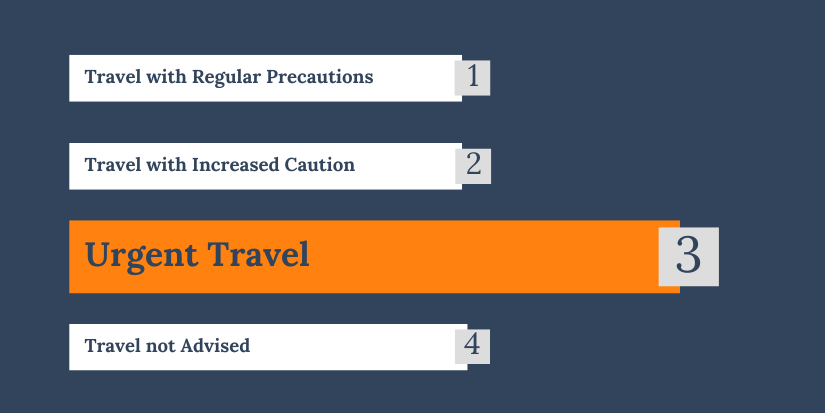
VISA REGIME
For holders of national passports and other travel documents: Visa required
For holders of diplomatic and official passports: Visa required
Note: Holders of emergency travel documents in transit do not require a visa
ENTERING AND LEAVING THE COUNTRY
Citizens of the Republic of Serbia require a visa, obtained in Bolivian diplomatic-consular representative offices abroad. The procedure depends on the type of visa required. A stay in Bolivia may be extended to up to 180 days in a single year. The closest Bolivian embassy is in Rome, Italy. Travellers arriving from countries with a yellow fever epidemic must show evidence of vaccination, but others do not have that obligation.
SOCIAL SECURITY AGREEMENT
No social security agreement has been signed.
USEFUL INFORMATION
HEALTH SITUATION — Health insurance is not mandatory, but foreign tourists are advised to obtain insurance in their country of origin. Bolivian healthcare institutions mainly charge for their services in cash, and do not accept credit cards or cheques. Due to the high altitude and thin air, arriving travellers may experience breathing difficulties, nausea, or similar issues.
SECURITY SITUATION — A large problem in Bolivia is illegal trade in narcotics. For any form of assistance, tourists may contact the local tourist police or the Consular Service of the Ministry of Interior (Direccion General de Regimen Consular, telephone number 591 22 40 85 08, consular@rree.gov.bo). Due to the deteriorating security situation in Bolivia, primarily in the Santa Cruz department, where transnational criminal organizations are concentrated, travel is not recommended except in cases of extreme necessity.
TRANSPORT — Due to the high altitude, ranging from 2,000 to 6,000 metres, the most reliable means of transportation are airplanes. There are three large international airports in the country: La Paz, Santa Cruz and Cochabamba, as well as a large number of small ones, with packed earth runways. There are two main railway lines: the eastern (1,222 km), connecting the country with Brazil and Argentina, and the western (2,318 km) towards Peru and Chile. These are also the only lines connecting Bolivia with maritime ports in those countries. A total of 4,600 km of the road network is under asphalt, but the roads are mainly used by the local population. Citizens of the Republic of Serbia may drive motor vehicles within the territory of Bolivia if, in addition to their national driver's licence, they have a valid international driving permit during the first 90 days of their stay. Thereafter, they need to exchange their national driver’s licence for a local driver’s licence.
OTHER — The Bolivian currency is the peso boliviano. The best foreign currency to use is the US dollar. Credit cards such as American Express, Visa, Master Card and others are accepted in Bolivia, including Serbian bank cards for use abroad. The daily cost of stay in Bolivia depends on the place, hotel rank, etc. On average, it ranges from 35 to 70 USD. Due to the predominance of air transport, the largest expense item is air fare.
In addition to Spanish, the main language of communication is English, spoken at all major tourist points. The richest and the most comprehensive data on the tourist potential of Bolivia is provided by www.colonialvoyage.com.
Contact information:
During your stay in Bolivia, for consular assistance and protection, you may contact the Embassy of the Republic of Serbia in Buenos Aires (address: Montevideo 696 C1019 ABN, BUENOS AIRES ARGENTINA), at the following numbers: +5411/4371-1359 , +5411/4371-1362 , and e-mail address: srb.emb.argentina@mfa.rs
